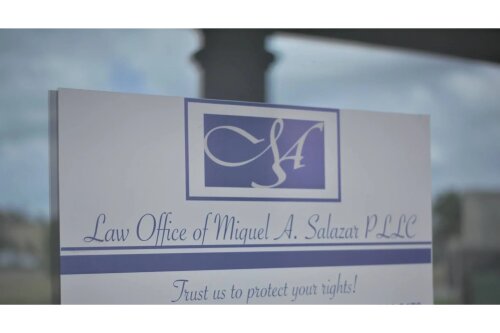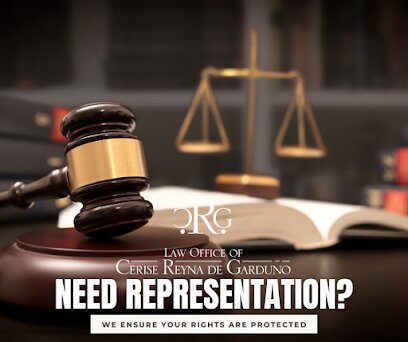Best Brain Injury Lawyers in Brownsville
Share your needs with us, get contacted by law firms.
Free. Takes 2 min.
List of the best lawyers in Brownsville, United States
About Brain Injury Law in Brownsville, United States
Brain injury law in Brownsville is part of the broader field of personal injury and medical malpractice law governed by Texas statutes and case law. Brownsville is in Cameron County in the state of Texas, so people injured there are subject to Texas court procedures, deadlines, and liability rules. Brain injuries can arise from motor vehicle collisions, slip-and-fall incidents, workplace accidents, recreational incidents, assault, defective products, and medical care errors. Legal claims for brain injury often involve complex medical evidence, long-term care needs, and interactions with insurance, workers compensation, or government entities.
Why You May Need a Lawyer
Brain injuries are often life-changing and require substantial medical care and long-term support. You may need a lawyer in situations such as:
- Serious traumatic brain injury from a car crash, fall, or assault where another party may be at fault.
- Brain injury caused by medical negligence, including delayed diagnosis, surgical error, or improper treatment.
- Workplace brain injury where workers compensation coverage, employer liability, or third-party claims are involved.
- Disputes with insurers over coverage, benefits, or the valuation of future care and lost income.
- Claims involving minors or individuals who lack legal capacity to handle their own claims.
- Cases that require coordinating rehabilitation providers, vocational experts, and life-care planners to demonstrate long-term needs and costs.
A lawyer who handles brain injury cases can investigate the cause, gather medical and expert evidence, calculate damages, negotiate with insurers, and, if necessary, represent you in court.
Local Laws Overview
This overview highlights key legal rules in Texas that apply to brain injury claims in Brownsville. These are general points and not a substitute for legal advice tailored to your situation.
- Statute of limitations - For most personal injury and wrongful death claims in Texas, the time limit to file a lawsuit is two years from the date of the injury or death. Missing this deadline can bar your case, so act promptly.
- Comparative fault - Texas uses a modified comparative fault rule. A claimant cannot recover if they are 51 percent or more at fault. If the claimant is less than 51 percent at fault, a court will reduce recovery by the claimant's share of fault.
- Claims against government entities - Suits against a city, county, school district, or other governmental entity have special notice and procedural requirements. For many Texas governmental defendants, you must provide written notice of the claim within a short time frame and follow statutory claim procedures before suing.
- Medical malpractice - Cases against health care providers are subject to specific rules. Texas requires an expert report to be filed early in litigation to support allegations of negligent care. There may also be different limitations, notice requirements, and, in some instances, damage limitations that apply to medical liability claims.
- Workers compensation - If a brain injury occurs at work and the employer carries workers compensation insurance, benefits are handled through that system with its own deadlines and difference in recoverable damages. In Texas, employers are not required to carry workers compensation insurance, and rules differ if the employer is a non-subscriber.
- Product liability and premises liability - Claims involving defective products or unsafe property conditions follow specialized legal theories ranging from strict liability to negligence, with their own evidence requirements and potential defendants.
Because laws and procedures can be complex and change over time, consult a local attorney to understand how these rules apply to your specific case.
Frequently Asked Questions
What counts as a brain injury for legal purposes?
Legally, a brain injury can include traumatic brain injuries from external force, anoxic brain injuries from oxygen deprivation, and injuries caused by medical error or stroke. What matters in a legal claim is whether the injury was caused by someone else’s negligence, wrongdoing, or a defective product, and whether it led to measurable damages like medical costs, lost wages, or diminished quality of life.
How do I know if I have a valid claim?
You may have a valid claim if another party owed you a duty of care, breached that duty, and that breach caused your brain injury and measurable damages. Establishing causation and damages usually requires medical documentation, accident reports, witness statements, and, often, expert testimony. A lawyer can evaluate your facts and advise whether a claim is likely to succeed.
How long do I have to file a lawsuit in Brownsville?
For most personal injury and wrongful death claims in Texas, you generally have two years from the date of injury or death to file a lawsuit. Different deadlines may apply to certain claims, such as those against government entities or under specific statutes. Because the clock can run quickly, consult an attorney promptly.
What if I was partly at fault for the injury?
Texas applies a modified comparative fault system. If you are found to be 51 percent or more at fault, you generally cannot recover damages. If you are less than 51 percent at fault, your recovery will be reduced by your percentage of fault.
What should I do immediately after a suspected brain injury?
Seek emergency medical attention right away and follow medical advice. Preserve evidence when safe to do so - take photos, get contact information for witnesses, keep records of medical treatment and expenses, and report the incident to the appropriate authorities or your employer if it happened at work. Contact an attorney experienced in brain injury cases early to protect legal rights and deadlines.
How are brain injury damages calculated?
Damages can include past and future medical expenses, rehabilitation and therapy, lost wages and lost earning capacity, pain and suffering, and costs for long-term care and home modifications. Value depends on the severity of injury, prognosis, necessity of lifelong care, and supporting expert testimony such as life-care plans and vocational evaluations.
Can I file a claim if the injury happened at work?
If the injury happened at work, you may have workers compensation benefits available if your employer has coverage. Workers compensation typically covers medical treatment and partial wage replacement but can limit the right to sue the employer. If a third party caused the injury, you may have a separate personal injury claim against that party. Rules for workplace injuries differ, so talk to an attorney familiar with Texas workers compensation law.
What is the role of experts in a brain injury case?
Medical experts are crucial to explain the nature and cause of the brain injury, prognosis, required care, and impact on function. Life-care planners, vocational experts, and economists can help quantify future costs and lost earning capacity. In medical malpractice cases, expert reports often are required early in the case to support the negligence allegations.
How do insurance companies handle brain injury claims?
Insurance companies will investigate claims and may offer early settlements that do not reflect long-term needs. They focus on minimizing payouts. Do not accept a full settlement without consulting an attorney, because once you settle, you may be responsible for future medical costs that exceed the settlement. An attorney can negotiate, handle interactions with insurers, and help assess true value.
How do I find the right lawyer in Brownsville?
Look for attorneys who focus on serious personal injury and brain injury cases, have relevant trial and settlement experience, and can show successful outcomes in complex cases. Ask about client referrals, case staffing, use of experts, fee structure, and whether they offer a free initial consultation. Make sure the attorney is licensed in Texas and familiar with local courts and medical providers in Brownsville and Cameron County.
Additional Resources
Below are types of resources and organizations that can help when dealing with brain injury and legal matters in Brownsville. Contact these kinds of agencies for information, benefits, or referrals.
- Local courts and clerk offices in Cameron County for filing procedures and forms.
- Texas Department of Insurance for information about dealing with insurers and complaint procedures.
- Texas Office of the Attorney General for consumer protection guidance.
- Texas Department of State Health Services for public health and rehabilitation resources.
- Brain Injury Association of America and regional brain injury associations for education, support groups, and local referrals.
- Social Security Administration for disability benefits and guidance on applying for Social Security Disability Insurance and Supplemental Security Income.
- Local hospitals and rehabilitation centers that provide diagnosis, treatment, and long-term care resources.
- Workers compensation representatives or the Texas Department of Insurance - Division of Workers Compensation for workplace injury questions.
- Legal aid organizations and bar association referral services for people with limited means seeking attorneys experienced in personal injury and brain injury law.
Next Steps
If you or a loved one has suffered a brain injury in Brownsville, consider these practical next steps:
- Get immediate medical care and follow the treatment plan. Proper medical documentation is essential for both health and legal claims.
- Preserve evidence - medical records, accident reports, photos, witness contacts, and records of expenses and lost income.
- Avoid giving recorded statements to insurers without consulting a lawyer, and do not sign releases until you understand the full value of your claim.
- Contact a local attorney experienced in brain injury cases for a prompt evaluation. Many offer free consultations and work on contingency-fee agreements, which means fees are paid only if you recover.
- If the injury occurred at work, report it to your employer and ask about workers compensation. Keep copies of all reports and communications.
- Keep a detailed journal of symptoms, medical appointments, and how the injury affects daily life. This information can be valuable for medical and legal evaluation.
Acting quickly helps protect legal rights and preserves evidence. A qualified Brownsville attorney can guide you through insurance claims, benefit applications, and, if needed, litigation to pursue compensation for medical care, rehabilitation, and long-term needs.
Lawzana helps you find the best lawyers and law firms in Brownsville through a curated and pre-screened list of qualified legal professionals. Our platform offers rankings and detailed profiles of attorneys and law firms, allowing you to compare based on practice areas, including Brain Injury, experience, and client feedback.
Each profile includes a description of the firm's areas of practice, client reviews, team members and partners, year of establishment, spoken languages, office locations, contact information, social media presence, and any published articles or resources. Most firms on our platform speak English and are experienced in both local and international legal matters.
Get a quote from top-rated law firms in Brownsville, United States — quickly, securely, and without unnecessary hassle.
Disclaimer:
The information provided on this page is for general informational purposes only and does not constitute legal advice. While we strive to ensure the accuracy and relevance of the content, legal information may change over time, and interpretations of the law can vary. You should always consult with a qualified legal professional for advice specific to your situation.
We disclaim all liability for actions taken or not taken based on the content of this page. If you believe any information is incorrect or outdated, please contact us, and we will review and update it where appropriate.











